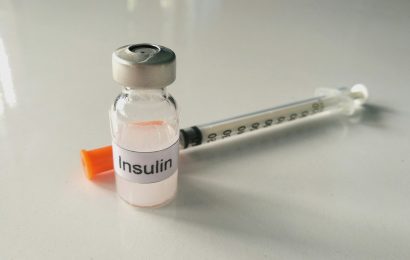Breakfast has been a topic of much debate, including debates that you may have had with your mother when you were younger. Over the past couple of years, some research has shown that when it comes to weight management, skipping this first meal of the day has little effect on body weight. Researchers may also have debunked the belief that skipping breakfast leads to overeating later in the day. On the other hand, critics of these studies point out that the researchers didn’t take into consideration, for example, what the subjects usually ate for breakfast or what the findings may have been had the subjects been of a normal weight or even underweight.
Breakfast and blood sugars
When it comes to diabetes management, most experts are of the belief that eating breakfast is beneficial. For example, in one study, overweight women who bypassed breakfast had higher insulin and blood sugar levels after lunch compared to days when they ate breakfast.
And in another study, men who skipped breakfast had a 21% higher chance of developing diabetes than those who did eat it.
This past summer, an article in the journal Diabetes Care revealed that overweight patients with Type 2 diabetes who fasted until lunchtime experienced significant spikes in their blood sugars throughout the day, as well as increases in HbA1c levels. The researchers believe that skipping breakfast causes the beta cells in the pancreas to “forget” their job of releasing insulin when no food is eaten between dinner and lunch of the following day.
Other benefits of breakfast
While you may have grumbled about having to eat breakfast as a kid, you might want to thank your mother for making you eat before you dashed off to school. Breakfast eaters have some health advantages over breakfast skippers. For example, compared to skippers, breakfast eaters:
• Have an easier time losing weight and keeping it off
• Have lower LDL (“bad”) cholesterol levels
• Eat healthier, overall
• Are more likely to meet their daily fiber goal
• Have an improved attention span and are able to better concentrate
• Are in a better mood
Eating breakfast helps to stabilize blood sugar levels, both in people with and without diabetes. Another reason to eat breakfast if you have diabetes: less likelihood of low blood sugar levels if you take morning insulin or certain types of diabetes pills.
Best breakfasts
Of course, grabbing a fat-laden doughnut or a bulky bagel may not be the best choice when it comes to breakfast. The key to a healthy morning meal is to choose a variety of foods so that you’ll get a balance of carbohydrate, protein, and fat. Here are some options to consider:
Whole grains. Bypass the refined carbs, like white toast or sugary cereals. Go with whole grains: steel-cut oatmeal, whole wheat bread, whole-grain waffles, or whole-kernel corn tortillas.
Lean protein. Be sure to include protein at breakfast to help control hunger, stabilize blood sugar, and maintain lean body mass. Sources of protein include eggs, Greek or Icelandic-style yogurt, low-fat cottage cheese, tofu, and Canadian bacon. Don’t overlook other protein foods, too, like salmon, turkey breast, or lean ham.
Healthy fat. Fat is a necessary nutrient that helps you feel more full. But choose wisely. Go with nut butters, light butter, nuts, seeds, and avocados.
Fruits and vegetables. Fresh fruit is a welcome addition to any breakfast, but skip or limit juice. Veggies, too, can spruce up breakfast — add them to an omelet or scrambled eggs, for example. Or munch on some carrot sticks. Veggies make a great addition to smoothies, too.
Lower-fat dairy. Use nonfat or low-fat milk instead of whole milk. If you can’t or don’t drink milk, try non-dairy milk alternatives like rice, almond, coconut, or soy milk. Choose plain rather than sweetened versions. Keep in mind, though, that rice, almond, and coconut milks are very low in protein.
Remember, too, that breakfast doesn’t have to consist of traditional breakfast foods. What’s most important is that you eat something in the morning (“break the fast”) to get your metabolism going and give you a head start to better manage your blood sugars for the rest of the day.





